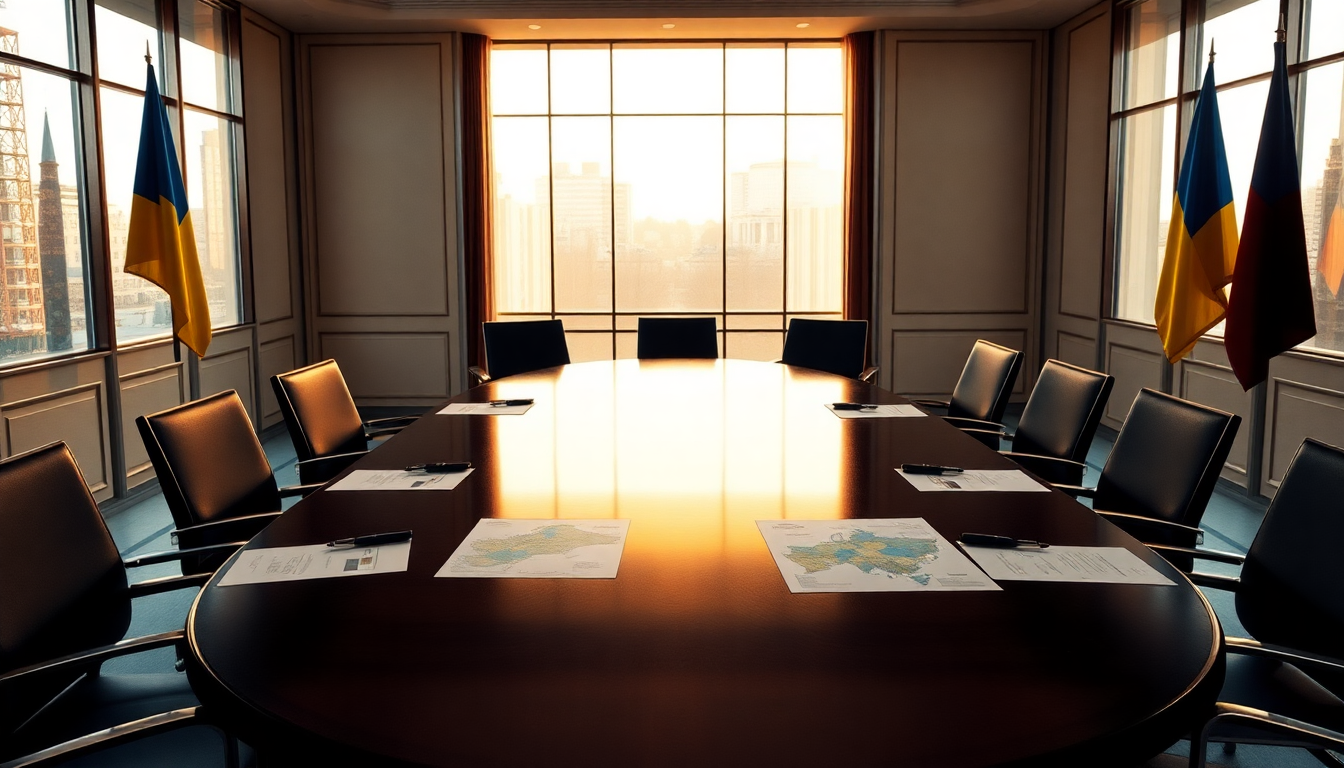Table of Contents
The ongoing conflict between Russia and Ukraine is still gripping the world’s attention, and the push for diplomatic solutions has never been more vital. Recently, Steve Witkoff, who served as President Trump’s special envoy for negotiations, announced his plans to meet with Ukrainian representatives in New York. This meeting reflects a commitment to keep the dialogue alive, even as significant hurdles continue to overshadow the peace process. But will this effort make a difference?
What’s Happening Between Russia and Ukraine?
Despite the ongoing calls for peace, the relationship between Russia and Ukraine remains incredibly tense. Witkoff pointed out that Moscow has acknowledged the potential for a presidential-level meeting between President Putin and Ukrainian President Volodymyr Zelensky, but there’s a healthy dose of skepticism surrounding it. Russian Foreign Minister Sergey Lavrov has openly questioned Zelensky’s legitimacy, throwing a wrench into the prospects for direct talks.
Add to that the Kremlin’s recent pushback against a possible summit, and it’s clear that these diplomatic interactions are anything but straightforward. Witkoff emphasized that communication remains constant between U.S. officials and their Russian counterparts, indicating a persistent effort to keep lines of dialogue open, even amidst the challenges.
Witkoff’s statements underscore the urgency of the situation. Trump has been vocal about wanting a bilateral meeting that could pave the way for a peace agreement. Witkoff believes that Trump’s involvement could be crucial in bridging the gap between the two nations, especially given Trump’s past discussions with Putin focusing on the need for peace. But can one meeting really change the course of history?
The Trump Administration’s Involvement
During his time in office, Trump’s administration actively sought ways to encourage dialogue and work towards a peaceful resolution. Witkoff expressed his belief that Trump’s direct engagement might be essential in navigating the complexities of peace negotiations. Interestingly, there’s a peace proposal currently on the table that includes discussions about Donetsk, a hotly contested region, but it may not align with Ukraine’s interests. How do you balance such conflicting perspectives?
Witkoff highlighted Trump’s disappointment with both sides for their lack of progress. He noted that Trump sees the ongoing conflict as unnecessary and is keen to do what he can to stop the violence. This perspective suggests that Trump views himself as a pivotal player in the negotiation process, ready to shoulder the responsibility of facilitating peace.
As these discussions unfold, the need for constructive dialogue is paramount. Witkoff’s upcoming meeting with Ukrainian representatives is a step in that direction, signaling readiness to engage and explore potential pathways to peace. But will this be enough to spark real change?
What Lies Ahead: Challenges and Opportunities
The journey towards peace in the Russia-Ukraine conflict is riddled with challenges, and the way forward remains uncertain. With Witkoff’s meetings and ongoing dialogues, there’s a glimmer of hope for constructive discussions. However, skepticism from the Russian side and a complex political landscape will require careful maneuvering.
As the situation evolves, it’s crucial for everyone involved to stay committed to the dialogue process. The potential for a meeting between Trump, Putin, and Zelensky could serve as a pivotal moment, but it hinges on the willingness of all parties to compromise and engage in genuine discussions. Are they ready to put aside their differences for the sake of peace?
In conclusion, while the diplomatic efforts led by the Trump administration are significant, overcoming deep-seated positions and mutual distrust will be essential for any meaningful progress. The next few weeks will be critical as stakeholders evaluate the viability of proposed peace initiatives and the potential for resolving this ongoing conflict. Will they seize the opportunity for peace, or will the cycle of tension continue?


